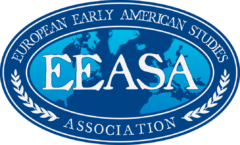organized by Stella Nair (UCLA) and Paul Niell (Florida State University)
The 2022-2023 core conference program of the Center for 17th– & 18th-Century Studies at UCLA’s Clark Library (2022–2023) convenes scholars around the topics of “Ecology,” “Ephemeral Architecture,” and “Imperialism” between the peoples and places of the Caribbean and South America, along with parts of North America and Africa. Due to national politics, language barriers, and scholarly divisions that have their roots in the European colonization of the Americas, the long and complex history of exchange among these regions and peoples have been greatly understudied. In truth, this history of entanglement across water and land stretches back millennia, resulting in a rich and diverse built environment that is deeply tied to ecological change. This dynamic did not end with the invasion of 1492, but rather continued to expand and accelerate when people, plants, and empires came from across the Atlantic. Using ephemeral architecture, in particular the complex and exquisite creation of thatch roofs as the leading thread in these tapestries of exchange, this series of conferences highlight the profound ways in which environmental practices, botanical knowledge, technological development, architectural innovation, and creative expression were deeply tied across these distinct regions and peoples and shaped by imperial actions. This conference series brings an unusually diverse number of disciplines together in order to unpack these complex dynamics, which challenge how we understand the built environment, the early modern Atlantic World, and the intersections between the local and the global.
The first conference Ecology was held November 4–5, 2022, and explored the complex and dynamic ecologies from which ephemeral architecture arises in the Indigenous Caribbean and South America worlds, and their transformation with the arrival of Africans and Europeans (with their flora, fauna and technologies). The second conference “Ephemeral Architecture” (Feb. 10–11, 2023) will bring into focus the ways in which distinct peoples, regions, and states used their local ecology to design, shape, and transform their built environments–often in the face of threats from imperial states. By shining a critical light on the fascinating but fleeting (and often overlooked) ephemeral architecture, in particular, thatch roofs, we will begin to see how ecologies and architectures became deeply entangled, such as in the form of technological, cultural, and environmental knowledge as well as artistic innovation. Scholars from multiple disciplines along with builders will come together to share and discuss a strikingly diverse and dynamic corpus from across the Americas and West Africa. These scholars will explore these “forgotten canopies” in all their material complexities, including the larger structures (built of out of wood, adobe, wattle and daub, brick, and stone), spaces (single, multi-room, rectangular, round, etc.), functions (political, religious, and domestic) and environments (tropical island, dry deserts, highland mountain, etc., as well as urban and rural landscapes) of which they were a part.
Critical consideration of the interrelationships between ecologies and ephemeral architectures sets the stage for the theme of the third conference “Imperialism” (April 14-15, 2023) which will address the imperial transformations of the Caribbean and South America and their impact on and entanglement with the larger early modern Atlantic world. Participating scholars in this conference will use studies of ephemeral architecture, especially thatched roofs, to focus attention on processes of imperialism and landscape transformation relating to Indigenous and Black Americans. In particular, this conference will highlight the complex ways in which Imperial authorities impacted, transformed, and were transformed by, long standing ecological practices and ephemeral architectural knowledge. In doing so, the conference underscores the vital role of ephemeral architecture, such as thatched roofs, in telling histories, even that of global empires, and thus is a reminder of the critical need for the study and preservation of this “Forgotten Canopy.”
Each of the three conferences in “The Forgotten Canopy” Core Program at the UCLA Clark Library will be accompanied by a Native American community-based workshop in southern California throughout 2022–23. The Director of the American Indian Studies Center (AISC), Shannon Speed, is working with Nair and Niell, the Conference organizers, and Los Angeles-based Native Communities to plan and schedule these workshops, which aim to amplify the critical contributions of Native Americans and African Americans to the architecture of the Americas. The Workshops will expand the conference discussions through on-site visits to locations and collections of Native and African American significance in the Los Angeles area. These workshops are funded by the Terra Foundation for American Art.
Conference website: http://theforgottencanopy.create.fsu.edu/
Conference 2, Day 1 (Feb. 10): http://www.1718.ucla.edu/events/forgotten-canopy-c2d1/
Conference 2, Day 2 (Feb. 11): http://www.1718.ucla.edu/events/forgotten-canopy-c2d2/
Contact Email: pniell@fsu.edu
